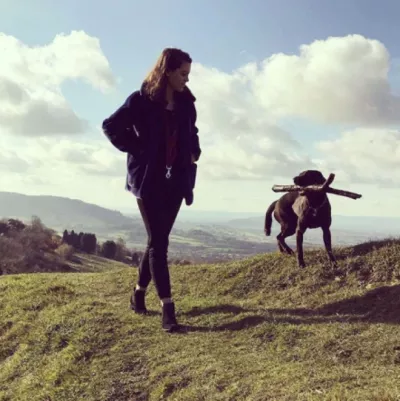Today I am going to be sharing my experience of epilepsy and mental health. I was diagnosed with absence epilepsy at eleven years old. Since then I have been on a journey with my anxiety. Through this post I will talk about the struggles of mental health but most importantly how I overcame them.

How my anxiety started
Being diagnosed with epilepsy at the age of eleven was a daunting and confusing time. Combined with the fear of not knowing when another seizure would happen and medication side effects. I went from being a very confident and energetic girl who had never experienced anxiety to a frightened and reserved individual. My anxiety initially came from the fear of worrying when a seizure could happen. This manifested in my head and over a period of a couple of years, I became too scared to go to school. At the time I felt like I was the only one feeling this way but Epilepsy Research conducted a survey and found that “56% of adolescents with epilepsy had signs of mental health problems, and that these issues contribute to a low quality of life.”
My anxiety became so bad I would have panic attacks and it lead to me feeling very low. My panic attacks felt terrifying. I would get dizzy. I’d feel sick. My heart would race. My vision would blur. I knew something needed to be done to help get me out of this vicious cycle. But thirteen year old me was too scared and confused to talk. On reflection one thing I wish I did sooner was talk about how I felt.
The journey to control
I vaguely remember being in my early teens and my neurologist referring me to counselling. As although I didn’t talk about how I was feeling at the time, my parents knew that I needed support. I believe these sessions with the counsellor could have been very helpful but I felt too scared to talk about how I felt. This was partially down to the fact I didn’t have an understanding of what was happening. It’s so important society has a better understanding of mental health and it is spoken about more, especially as children with epilepsy are four times more likely to experience a mental health problem.
As I reached around the age of fifteen, I was still experiencing anxiety and low moods. But I learnt to focus on small steps or goals and these would then lead to helping my mental health. For example this could be, taking the dog on a walk or going to the cinema with friends. I started these small steps and gradually they turned into bigger goals over time. I started studying at a new sixth form and this really helped my confidence. I could feel the happy and energetic Jasmine returning. However, at the back of my mind I still struggled with my anxiety and the fear of if I would have a seizure. This is when I started Cognitive Behavioural Therapy.

It is okay to find it overwhelming and scary at times
For me personally, cognitive behavioural therapy had a huge help on my mental health and overcoming the fears that had manifested in my brain. Also I had reached a point where I understood what was happening and felt I was able to talk about it. The more sessions I had the more I noticed the anxieties going and the confidence growing.
One thing I wish I could go and tell my younger self is that being diagnosed with epilepsy can be a lot for a child to go through, so it is okay to find it overwhelming and scary at times. I was very lucky to have the amazing support and love from my family but I was too scared to talk about how I felt. However, over time I have gathered various tips and below is a list of what has helped me:
My top tips
• Counselling - talking to someone and being open about how you feel about your mental health and epilepsy can really help.
• Cognitive behaviour therapy - is a form of talking therapy, which works on changing the way your subconscious mind thinks and reacts to situations.
• Walking - walking my dog was a great way to get exercise and fresh air.
• Time with friends or family.
• Take small steps - make achievable and small goals, these gradually build up over time and feel very rewarding.
• Spend time with pets - whether its walking my dogs or spending time on the sofa hugging and stroking them, it has always been a great way for me to relax.
• Routine and rest - getting a good routine and sleep schedule really helps me to manage my mental health.
• Be kind to yourself.
• Yoga or meditation – really helps me to have a calmer and clearer mind.
• Talk to someone - the big one for me. It is important to share with someone you trust how you are feeling so you can get the right support and help. This could be a family member, teacher, GP, friend or Young Epilepsy.
I am now twenty-three years old and it is fair to say from time to time I still experience moments of anxiety. But overall, I can say through the methods I have learnt how to gain control of my anxiety and am proud of how far I have come. Overall, the important factor is to not suffer in silence and talking about how you feel to someone you trust is key.

